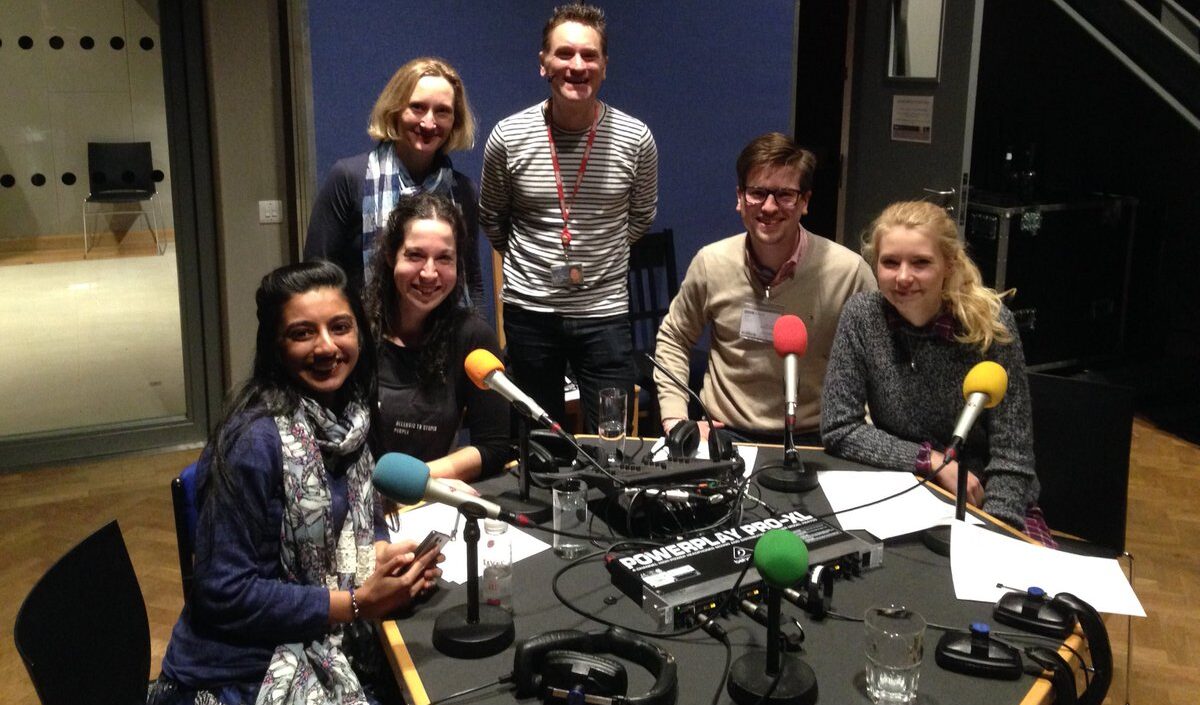The Power of Media…

…by Priya / from India / PhD Edinburgh Cancer Research Centre 2013-2017
We all hate answering questions we don’t have an answer to. For me, one of those questions has been answered today, whilst simultaneously opening my mind to other more thought provoking questions.
Who inspires you? For a long time, I’ve struggled to answer this question. In everyday life, it seems typical to say “my parents,” but career wise, I really can’t hold them to account of my aspirations of becoming a scientist. Although, I’ve always known I wanted to become a research scientist, I could never pinpoint the person/ people who have drawn me down this path. As of today, there is definitely a name I can present: Dr. David Eagleman.
I only came to hear of the renowned neuroscientist when I became hooked on his six part documentary, “The Brain with Dr. David Eagleman” airing on BBC4. With a title of “What is Reality?” the first episode opened up a new dimension my vision of the world. Gripped by the question as to how our brains, which are forever concealed within our skulls, paint a picture of the world around us, I didn’t dare to stop watching.
Over the course of the series, there have been some concepts that have really stuck with me. Episode 3 explores the unconscious brain, the vast majority of our brain that controls all of actions that we do not think about; breathing or walking for example. But since then, whenever I am in the lab doing routine tasks, such as pipetting liquids or passaging my cells, I am sure that now my ‘unconscious brain’ is beginning to take over. This is probably when the phrase ‘your so good at it, you could do it in your sleep’ comes in to play. I bet this answers all those times when in a particular experiment, I was suppose to make a slight change, but because I am so used to doing a procedure in a particular way that I have forgotten to make that change. I’m sure you can relate to this with aspects of your life.
Another interesting aspect from the series I would like to highlight is related to the question of “What drives people to commit murders and even mass homicides?” when most humans feel emotional pain just looking at a stranger in pain. It seems like such an obvious question to ask that I had just never thought of before.
The final episode deals with extending the life of the brain, beyond the life of the remainder of the human body. Themes such as cryopreservation of the brain or the body until a time when technology to rejuvenate them exists I’ve already come across, but the potential to decode the brain into a digital format so that our brain can exist and experience simulations without us being there is absolutely mind-blowing.
Not only do I feel I have learnt a great deal about our perceptions and the brain itself from this series, Dr. David Eagleman is also inspiration leading my dream to be a TV presenter of a documentary. For a long time, I thought this was a crazy idea of mine that would never been seen through, but I now don’t see why I can’t make that a reality. Last week, I was fortunate to have been able to attend a 3 day course entitled “Research, Researchers and Media,” which was provided to us students through the Institute of Academic Development and the Beltane Public Engagement Network. This was an amazing experience in which we learnt about science communication as the written word in magazine articles and news in print and online, to spoke word communication on TV and the radio. Gaining a taster for these fields as well developing some skills to help us understand and a be a part of these media, has really boosted my confidence to follow my ambition of not only being a researcher but communicating it well to the general public.
Here’s a huge thanks to the radio presenter and science communication lecturer Gareth Mitchell for putting together the wonderful programme and the University of Edinburgh for making it possible for us to attend.



